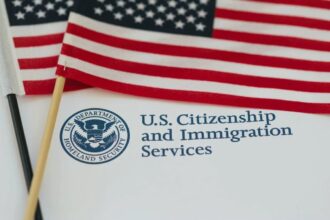President Donald Trump’s administration has implemented a policy that imposes fines of up to $998 for each day an immigrant remains in the United States after receiving a final order of deportation.
This measure, based on a 1996 law, seeks to pressure immigrants to leave the country voluntarily and is applied retroactively for up to five years, which could result in debts in excess of $1 million in some cases.
Details of Trump’s policy

The policy eliminates the 30-day grace period that previously existed, allowing fines to be imposed immediately after an immigrant receives a deportation order.
In addition, the possibility of confiscating property of those who do not pay the fines is contemplated.
The Department of Homeland Security (DHS) has issued approximately 10,000 penalty notices, totaling about $3 billion.
Retroactive application and consequences

The retroactive application of these fines has generated concern among immigrant rights advocates.
For example, Wendy Ortiz, a Salvadoran immigrant and mother of an autistic U.S. citizen child, was fined $1.8 million for failing to leave the country following a deportation order issued several years ago.
Immigration lawyers have expressed doubts about the legality and feasibility of collecting these fines, especially from low-income individuals.
Some legal experts argue that the policy could violate constitutional protections and create significant financial hardship for vulnerable communities.
Options for immigrants

The government has promoted the use of the CBP Home mobile application for immigrants to voluntarily self-deport.
Those who use this tool could have their fines waived and receive a $1,000 voucher to cover travel expenses.
However, pro-immigrant organizations recommend consulting with legal experts before using this application, due to the possible legal implications and the risk of immediate deportation.
El gobierno de Trump está demostrando cero tolerancia para con los inmigrantes, desatando protestas en todo el país
The Hispanic community affected
For Hispanics living in the United States who may be affected by this policy, it is recommended:
Consult with an immigration attorney: It is crucial to obtain legal advice to understand the options available and the potential risks.
Do not ignore notices: If a fine notice or deportation order is received, it is important to act quickly and seek legal assistance.
Avoid hasty decisions: Before using tools such as the CBP Home application, it is essential to fully understand the legal implications.
The implementation of these fines represents a significant change in U.S. immigration policy and could have a considerable impact on immigrant communities.
Staying informed and seeking legal support are critical steps in navigating this new reality.
Find out more at ‘QueOnnda.com’.














